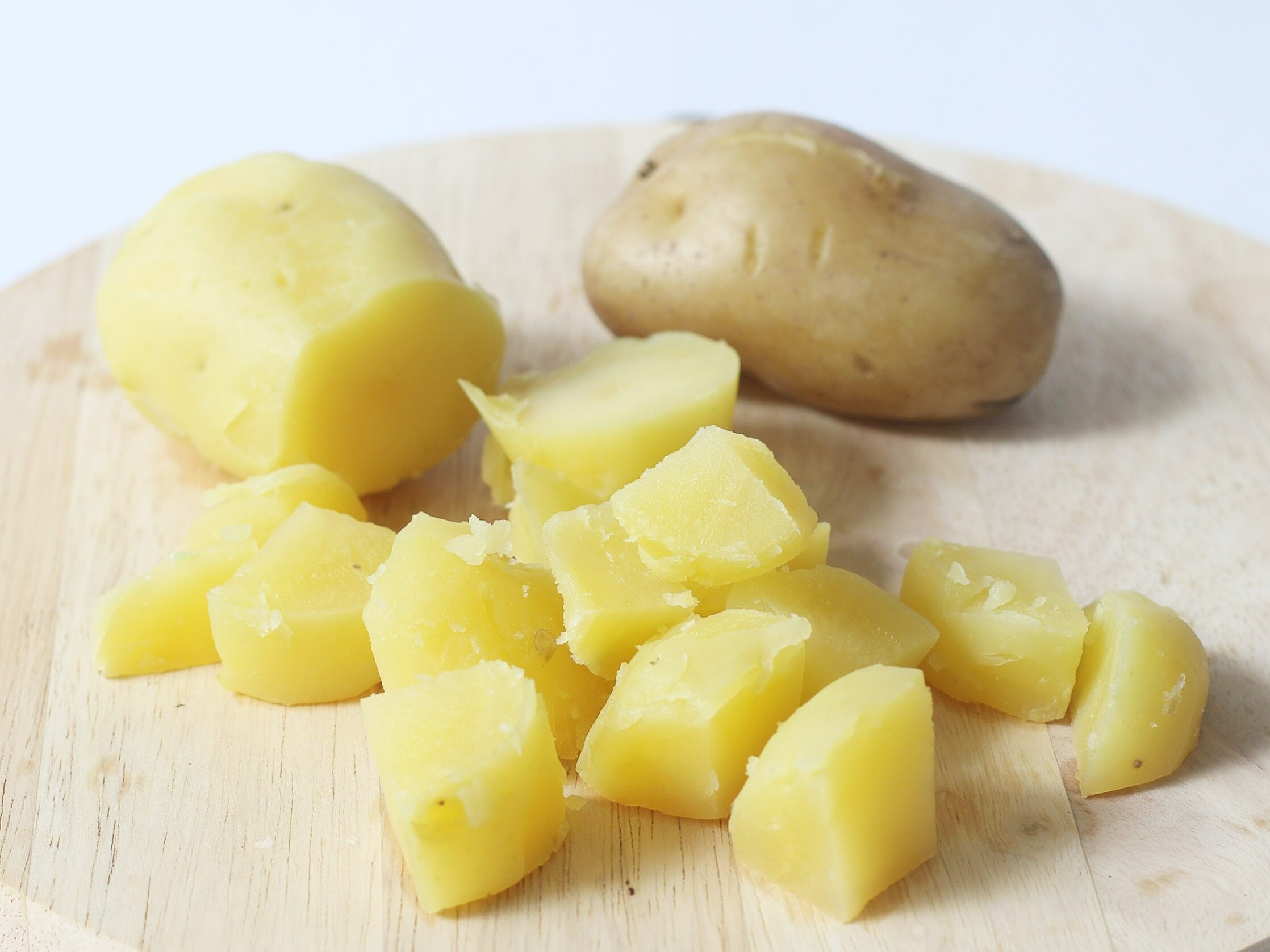Butyric acid has anti-inflammatory, antioxidant and anti-cancer properties. How does sodium butyrate affect the intestines and the entire body?

Butyric acid (or butanoic acid) is one of the short chain fatty acids (SCFA), which is produced in the process of bacterial fermentation in the digestive tract. Butyric acid and its derivatives, such as sodium butyrate (sodium salt of butyric acid), have a beneficial effect on intestinal health, which translates into the general condition of the entire body and well-being. Learn more about butyric acid and its impact on health.
- Butyric acid – basic information
- How does butanoic acid affect the intestines and the entire body?
- The use of butyric acid and its derivatives in intestinal diseases
- Summary on butyric acid and its derivatives
Short-chain fatty acids, including butyric acid, perform many important functions in the human body. To produce butyric acid, it is necessary to eat a diet rich in dietary fiber. Butanoic acid is produced during the anaerobic fermentation of dietary fiber and resistant starch. It is estimated that with an adequate supply of dietary fiber, the daily production of butyric acid in the large intestine of a healthy person is approximately 300–400 mmol.
Butyric acid – basic information
Butyric acid is one of three short-chain fatty acids that naturally occur in the human digestive tract. Butanoic acid has health-beneficial properties and a unique effect on intestinal functioning, which has made it the center of interest of many scientists for several decades.
Butyric acid is produced under physiological conditions in the large intestine. Other short chain fatty acids (SCFA) are acetic acid and propionic acid. The total SCFA concentration is approximately 60 -150 mmol/kg. Butyric acid is produced by several strains of intestinal bacteria, including:
-
Megasphaera elsdenii,
-
Butyrivbrio spp.,
-
Eubacterium spp.,
-
Clostridium spp.
The food for the above intestinal bacteria includes: oligosaccharides, resistant starch (its source is e.g. raw potato starch and cooked and cooled potatoes), non-starch polysaccharides, chondroitin sulfate. For newborns and infants, the endogenous source of sodium butyrate is milk oligosaccharides and mucin.
The appropriate concentration of butyric acid in the large intestine has a significant impact on the condition of colonocytes (intestinal cells). Butyric acid is the basic source of energy for intestinal epithelial cells and is also responsible for their growth and differentiation. Butyric acid penetrates from the intestinal lumen through the cell membrane into the cells of the intestinal epithelium, providing about 80% of the energy to colonocytes and constituting about 5-10% of the energy used by the entire body.
How does butanoic acid affect the intestines and the entire body?
Butyric acid and other short-chain fatty acids produced in the large intestine have a positive effect on the functioning of the digestive tract. Their appropriate level is necessary, among others: to stabilize the structure of the epithelial cells of the intestinal mucosa and ensure the integrity thanks to which the cells of the intestinal mucosa can perform their basic functions. and other short-chain fatty acids are also responsible for stimulating the growth of bacterial flora and inhibit the multiplication of pathogenic intestinal bacteria E. coli, Campylobacter and Salmonella.
The basic functions of butanoic acid and other short-chain fatty acids include:
-
regulation of transport through the epithelium,
-
strong anti-inflammatory effect,
-
reduction of oxidative stress (antioxidant effect)
-
immunoregulatory effect,
-
regeneration of the intestinal epithelium and acceleration of healing,
-
modulation of visceral sensitivity,
-
reducing the risk of developing cancerous lesions within epithelial cells.
Moreover, the appropriate level of short-chain fatty acids influences the motility of the gastrointestinal tract.
Butyric acid not only acts directly in the intestines. It is also a source of energy for organs located outside the digestive tract. Butanoic acid indirectly affects the regulation of intestinal pH and the absorption of calcium, iron and magnesium, as well as glucose metabolism and protein metabolism in the liver. The properties of butyric acid allow its use in the treatment of, for example, functional diseases of the digestive tract and non-specific inflammatory bowel diseases. Conditions that sodium butyrate can help treat include:
-
irritable bowel syndrome (IBS),
-
functional constipation,
-
functional diarrhea,
-
ulcerative colitis,
-
inflammation in the intestinal reservoir,
-
infectious diarrhea.
To increase the production of butyric acid in the large intestine, you need to eat a diet rich in sources of dietary fiber and resistant starch (e.g. partially ground cereal grains, vegetables and fruits).
It is worth knowing that deficiencies of this acid result in impaired intestinal barrier function and weakening of the regeneration and healing processes of the intestinal epithelium. Taking care of your intestinal health benefits the entire body, translating into overall health and immunity, which is directly related to the condition of your intestines.
The use of butyric acid and its derivatives in intestinal diseases
Butanoic acid has a strong anti-inflammatory effect that reduces inflammatory mediators. The action of butyrate includes, among others: blocking pro-inflammatory cytokines and blocking the release of IP-10 protein. Butyric acid also has immunoregulatory effects through, among others, decreased stimulation of Th1 lymphocytes. Moreover, butyric acid and its derivatives, such as sodium butyrate, affect the intestinal-blood barrier, stimulating the synthesis of protective mucus. The properties of butyric acid reduce inflammation, accelerate healing and regeneration, and also have an immunomodulatory effect, supporting the treatment process of patients diagnosed with, among others, Crohn’s disease or ulcerative colitis.
Due to its anti-inflammatory effect, butanoic acid can be used in cases of inflammation of the intestinal reservoir. In this case, it is recommended to use or supplement the diet with inulin topically – butyric acid is produced in the process of breaking down inulin by intestinal bacteria.
Butanoic acid and its derivatives, such as sodium butyrate, also have a beneficial effect on the intestinal mucosa excluded from transit and can be used, among others, in chronic intestinal inflammation after radiotherapy, in diverticular disease, irritable bowel syndrome, in the course of infectious diarrhea and other diseases of the digestive tract. Studies on the effects of butyric acid have been conducted in vitro, as well as on animal models and humans. Some of them have proven that therapy helps reduce the severity of troublesome symptoms. The effect of the acid was confirmed by the improvement of the endoscopic image in patients who underwent treatment.
An important issue is the duration of treatment – the best results can be achieved with long-term treatment. Before using butyric acid preparations, consult your doctor. The same applies to the use of inulin, which increases the production of butyric acid, and a high-fiber diet.
Summary on butyric acid and its derivatives
The important role of butyric acid in maintaining good intestinal health can be used to support the effects of treatment of various gastrointestinal diseases and intestinal microflora disorders, e.g. after antibiotic therapy. Butanoic acid has numerous health-promoting properties, including: has strong anti-inflammatory, antioxidant and anti-cancer properties. The natural production of butyric acid is supported by a diet rich in insoluble fractions of dietary fiber and resistant starch. Specialists recommend including all sources of fiber in your diet, i.e. whole grains, vegetables and fruit. Foods for special medical purposes are currently enriched with butyric acid; Butanoic acid is also available, among others, in capsules and can be purchased in pharmacies and dietary supplement stores.
Sources:
-
Tomasz Banasiewicz, Katarzyna Borycka-Kiciak, Agnieszka Dobrowolska-Zachwieja, Jerzy Friediger, Adam Kiciak, Piotr Krokowicz, Ewa Małecka-Panas, Piotr Pietrzak, Grażyna Rydzewska, Wiesław Tarnowski, Romuald Zabielski, Clinical aspects of the use of butyric acid in the dietary management of intestinal diseases , Przegląd Gastroenterologiczne, 5 (6), pp. 329–334, 2010
-
Barbara Kuczyńska, Agnieszka Wasilewska, Maciej Biczysko, Tomasz Banasiewicz, Michał Drews, Short-chain fatty acids – mechanisms of action, potential clinical applications and dietary recommendations, Nowiny Lekarskie, 80, 4, pp. 299–304, 2011
-
Barbara Skrzydło-Radomańska, Butyric acid – application in clinical practice, Doktor POZ 1, pp. 67-73, 2019






